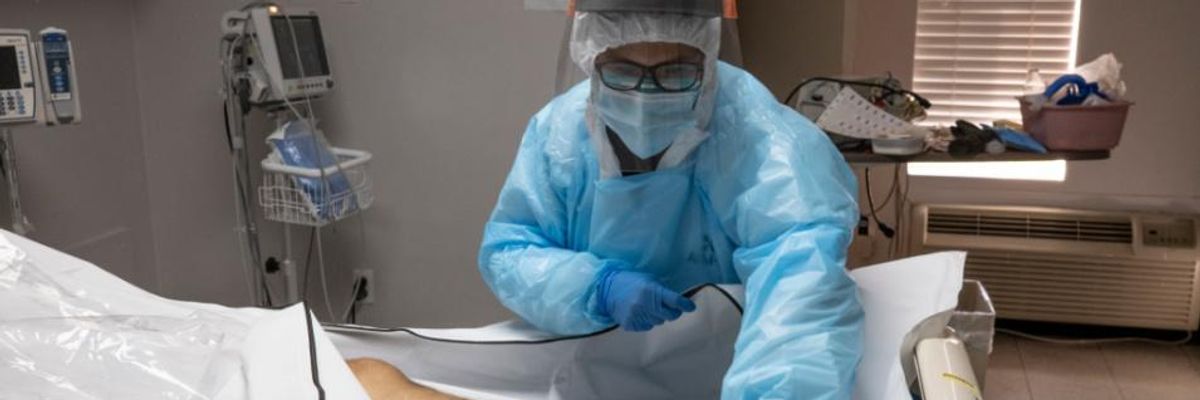On the same day the first American received a coronavirus vaccine, the U.S. pandemic death toll surpassed 300,000 on Monday, another grim milestone that comes less than four weeks after the number of Covid-19 deaths in the country reached 250,000.
The Associated Pressput the staggering statistics into context: "The number of dead rivals the population of St. Louis or Pittsburgh. It is equivalent to repeating a tragedy on the scale of Hurricane Katrina every day for 5 1/2 months. It is more than five times the number of Americans killed in the Vietnam War. It is equal to a 9/11 attack every day for more than 100 days."
At the same time, Brian Walter, who lost his 80-year old father to the disease, told NPR that "the numbers do not reflect that these were people. Everyone lost was a father or a mother, they had kids, they had family, they left people behind."
According to the Covid-19 Tracking Project, the U.S. is now averaging nearly 2,430 deaths per day.
Jennifer Nuzzo, a public health researcher at Johns Hopkins University, told AP that "to think now we can just absorb in our country 3,000 deaths a day as though it were just business as usual, it just represents a moral failing."
Despite constituting just over 4% of the global population, the U.S. is home to nearly 19% of the more than 1.6 million Covid-19 deaths that have occurred worldwide. The disproportionate impact of the pandemic on the American population was called "a catastrophic failure" of leadership to be blamed on President Donald Trump, who baselessly claimed in February that the virus was on the verge of disappearing.
"There's no need for that many to have died," David Hayes-Bautista, a professor of medicine at the University of California, Los Angeles, told the New York Times. "We chose, as a country, to take our foot off the gas pedal. We chose to, and that's the tragedy."
As Common Dreams reported earlier this month, progressives have argued that the catastrophic handling of the coronavirus crisis in the U.S.--while made worse by Trump and non-cooperative individuals--is better understood as the product of several decades of "free-market" ideology and associated policies that exacerbated inequalities and hampered an effective governmental response to the disaster as it unfolded.
Although Monday's coronavirus vaccine rollout represents good news in the fight against the pandemic, physician and public health expert Ashish Jha of Brown University lamented that the worst is yet to come. As a result of "infections that have already happened or will this week... we will pass 400,000 deaths... in January."
He said that "vaccines will help," but if we are serious about meeting the challenge of preventing the Covid-19 death toll from reaching 500,000, "we can [and] must do more" to stop the spread of the coronavirus.
"Actions taken collectively can really change the course of what is happening," Nicholas Reich, a biostatistician at the University of Massachusetts, told the Times. "One reason this is hard to predict is to some extent the power is in our hands."

